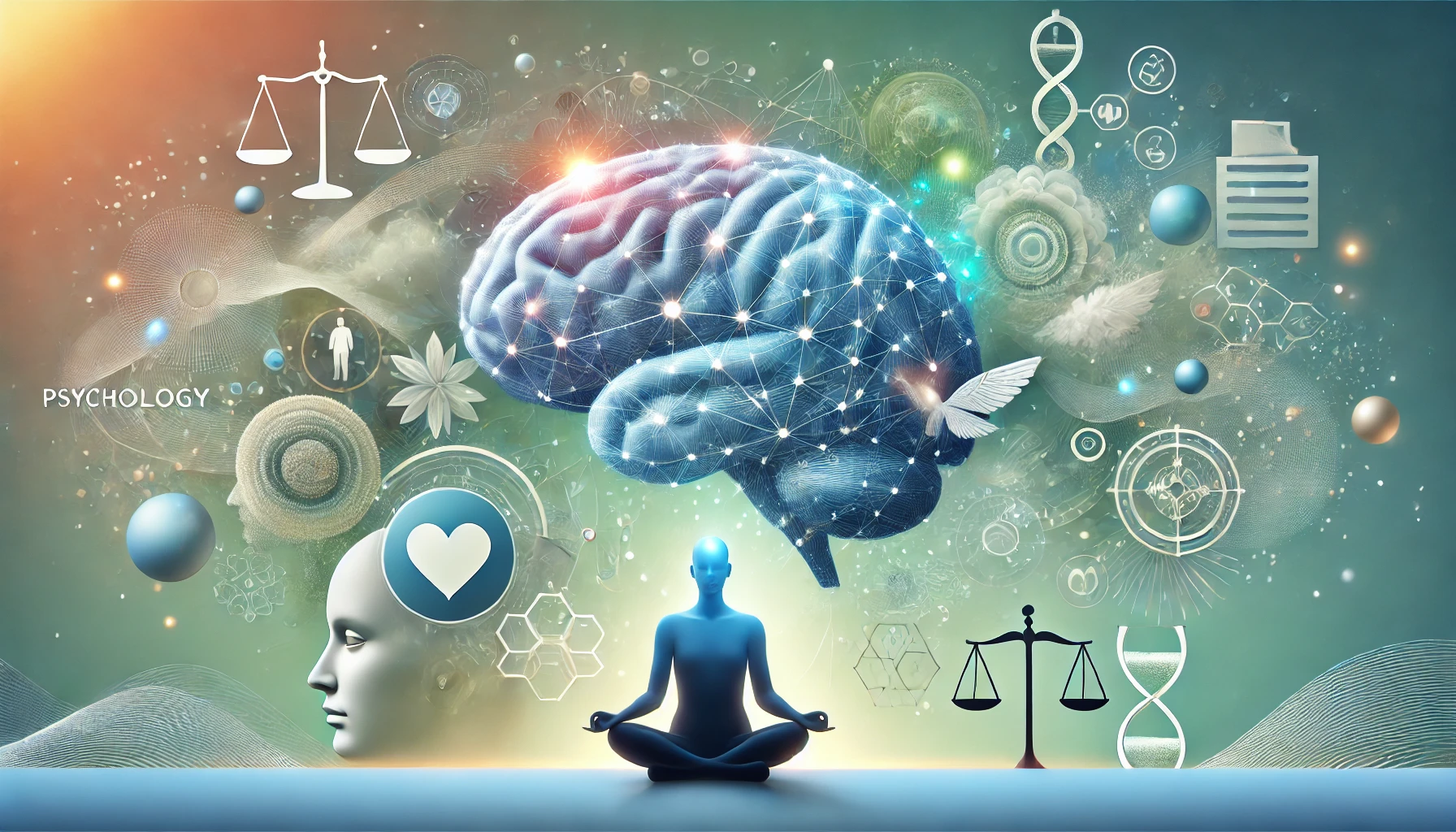The Connection Between Psychology and Mental Health: A Guide to Psychological Well-Being
Psychology and mental health are deeply connected, influencing everything from our thoughts and emotions to our behaviors and overall well-being. Understanding psychological facts can help us navigate daily challenges, improve emotional intelligence, and build psychological resilience. In this blog, we will explore essential psychological constructs, how cognitive behavioral therapy (CBT) can improve mental health, and the role of personality tests in self-discovery.
What is Psychology and Why Does It Matter?
Psychology is the scientific study of the mind and behavior. It helps us understand why people think, feel, and act the way they do. Psychological constructs, such as motivation, self-esteem, and cognitive biases, shape our decisions and interactions. By understanding these constructs, individuals can improve their mental health and psychological well-being.
Key Psychological Constructs That Influence Mental Health:
- Self-Efficacy: The belief in one’s ability to accomplish tasks.
- Locus of Control: The extent to which individuals believe they have control over their lives.
- Cognitive Dissonance: The discomfort felt when holding conflicting beliefs or attitudes.
A deeper understanding of these concepts can help individuals navigate emotional challenges and enhance overall well-being.
The Role of Cognitive Behavioral Therapy (CBT) in Mental Health
Cognitive Behavioral Therapy (CBT) is a widely used psychological treatment that helps individuals change negative thought patterns. It is particularly effective in treating anxiety, depression, and other mental health conditions.
How CBT Works:
- Identifies negative thoughts and behaviors.
- Replaces unhelpful thinking patterns with constructive ones.
- Encourages mindfulness and emotional regulation.
According to the American Psychological Association, CBT is one of the most effective treatments for improving psychological well-being. Learn more about CBT here.
Emotional Intelligence and Its Impact on Psychological Well-Being
Emotional intelligence (EI) is the ability to recognize, understand, and manage one’s emotions while also being aware of others’ emotions. High emotional intelligence is associated with better mental health and stronger relationships.
Benefits of High Emotional Intelligence:
- Improves communication and interpersonal relationships.
- Reduces stress and anxiety levels.
- Enhances problem-solving skills and decision-making.
Individuals with high EI are more adaptable and show greater psychological flexibility, allowing them to cope better with life’s challenges.
Understanding Personality Tests and Their Role in Self-Discovery
Personality tests help individuals gain insight into their traits, strengths, and areas for growth. These tests are widely used in personal development and career planning.
Popular Personality Tests:
- Myers-Briggs Type Indicator (MBTI): Assesses personality based on four dichotomies.
- Big Five Personality Traits: Evaluates openness, conscientiousness, extraversion, agreeableness, and neuroticism.
- Enneagram Test: Categorizes individuals into nine personality types.
Taking a personality test can provide valuable insights into psychological resilience and personal growth.
Building Psychological Resilience and Flexibility
Psychological resilience is the ability to bounce back from adversity, while psychological flexibility refers to adapting to changing circumstances with a positive mindset.
Ways to Build Resilience and Flexibility:
- Develop a strong support system.
- Practice mindfulness and self-care.
- Set realistic goals and stay adaptable.
Individuals who cultivate these traits experience greater mental health stability and overall life satisfaction.
The Link Between Psychological Well-Being and Mental Health
Psychological well-being encompasses emotional, social, and cognitive aspects of life. It is influenced by several factors, including stress management, emotional intelligence, and psychological constructs.
Tips for Enhancing Psychological Well-Being:
- Engage in regular physical activity.
- Foster positive social connections.
- Prioritize self-care and mental health support.
For more expert guidance on mental health and psychological topics, visit Regent Studies.
Understanding psychology and mental health allows individuals to enhance their psychological well-being. By exploring cognitive dissonance, emotional intelligence, and psychological resilience, we can develop healthier thought patterns and improve our overall quality of life. Whether through personality tests or cognitive behavioral therapy, taking proactive steps toward mental health awareness can lead to a more fulfilling life.
Start your journey to self-discovery and mental wellness today!





